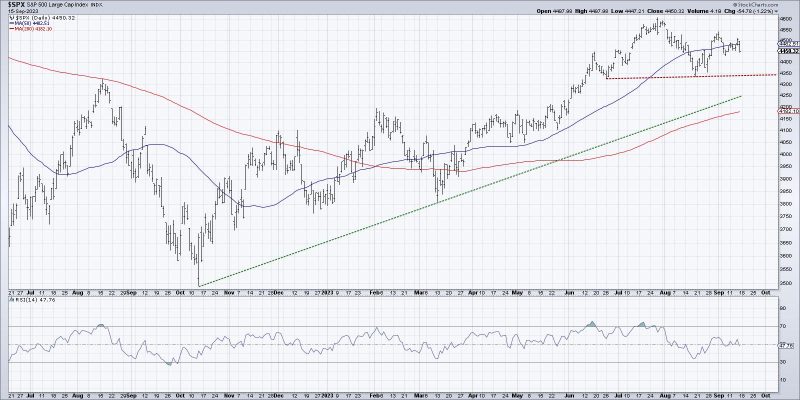As stock market volatility persists, ETFs have become increasingly popular tools for investors looking to gain exposure to specific areas of the market while spreading out the risk. ETFs, or exchange-traded funds, are baskets of stocks typically composed to represent an index or sector of the economy and can provide some of the benefits of ownership without having to buy a large number of individual stocks.
With this in mind, we take a look at three ETFs that are suggesting further downside risk could lie ahead in the near-term. All three of these ETFs have been underperforming the S&P 500 since the beginning of May and could be an indication of what is to come for the broader market.
The first ETF we are looking at is the iShares Russell 2000 ETF (IWM), which tracks the performance of small-cap stocks in the US. Since the start of May, this ETF has fallen nearly 8%, significantly underperforming the S&P 500, which is down just under 1.5%.
The second ETF we are looking at is the Invesco S&P 500 Equal Weight ETF (RSP). This ETF tracks the S&P 500, but each stock receives an equal weighting in the index, rather than being weighted by market capitalization. Since the start of May, RSP has declined roughly 5%, underperforming the S&P 500 by a wide margin.
The last ETF we are looking at is the Vanguard FTSE All-World ex-US ETF (VEU). This ETF tracks a global stock index, excluding the US, and has been one of the worst performers since the start of May, declining by nearly 9%.
Overall, these three ETFs suggest there could be additional downside risk ahead for the market. If the S&P 500 resumes its downward trend, these ETFs could continue to decline at a greater rate than the index. As such, investors should exercise caution when considering investments in these funds.































